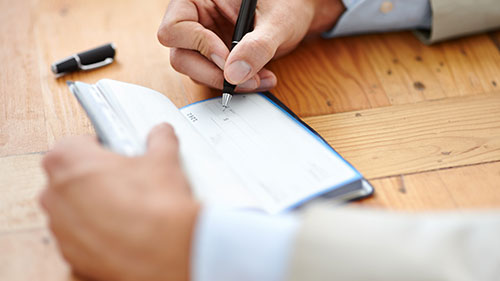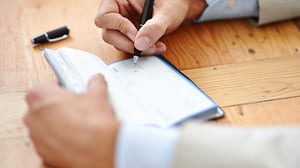2 min read
Should You Buy a Rental Car?
If you’re in the market for a used vehicle, you can choose to purchase a former rental car or a privately-owned car. Buying a rental car has its own...
Manage your everyday finances with convenient accounts, flexible cards, and personalized service designed to fit your life.
At First Federal Bank, we offer flexible mortgage solutions for almost any situation, helping you secure the right financing for your dream home.
Business banking offers secure financial management, streamlined transactions, credit options, and tools to help businesses grow efficiently and sustainably.
2 min read
First Federal Bank : February 21, 2020 12:22:00 PM EST


Before you drop your check register in the trash and rely on your smartphone, consider these reasons to keep the records around.
Thanks to the internet, it’s a snap to open up your account information with your financial institution and look at how much money you have available. That might convince you that some tasks, like balancing a checkbook and maintaining a physical check register, are unimportant. Before you drop it in the trash and rely on your smartphone, consider these reasons to keep the records around.
Detailed history
When you order checks from your financial institution, you should receive a check register in the box. If you lost it or didn’t get one, you can ask your institution if they have one you can use. Each check register lets you list the starting balance in your checking account, and then each horizontal line records a check that you wrote. If you use your debit card a lot, Michael R. Lewis of WikiHow recommends writing down your card transactions when you get home from a shopping trip. Besides recording how much money goes out or comes in, after every transaction you write the new balance in your checking account; that way you always know how much money is available in your account. At least once a month you should compare your check register to your online statement balance to make sure you did your math correctly and to see if there are any unexplained checks or withdrawals from your account.
Exact figures
When you write a real check or pay with a debit card, it can take a while for that information to show up in your account information. It’s possible that the transaction can show up as pending when you swipe or pay with a form online, but it’s not always guaranteed depending on a merchant’s point-of-sale system. Erin O’Neil of The Balance points out that if you write a check to a business or individual, it’s possible that it won’t be sent to the bank for a long time. Instead of being surprised when that money disappears from your online account, you can use the physical register to make sure you know how much cash you actually have available.
Better budgeting
If you’re looking for a way to control your spending, a physical check register forces you to confront your financial decisions head-on. O’Neil writes that you might be less inclined to buy a new television on a whim if you remember writing down your electric payment the day before and seeing your remaining funds. Writing down all of your transactions might also help you notice patterns and plan better, like preparing meals in advance if you notice that you eat out a lot later in the week when you get tired of cooking.
Spot mistakes
Machines are great, but they’re not infallible. If you track all of your spending with a check register and then compare it to what the electronic record online says, it’s possible that you’ll find you were overcharged for something and can get the issue fixed. Ruth Lyons of InvestorJunkie points out that you usually only have about 30 days to catch these errors, so the sooner you notice them with good record keeping the better.
If you’re unsure about using a check register, talk to someone at your financial institution or a trusted advisor. It’s not a requirement, but it is a great way to keep better track of your cash.

2 min read
If you’re in the market for a used vehicle, you can choose to purchase a former rental car or a privately-owned car. Buying a rental car has its own...

If you’re shopping for a truck, you have no shortage of options available. Almost every major brand on the market sells some kind of pickup, and many...

You probably seen credit card rewards advertised as a benefit. But do you know how to make the most of your rewards once you earn them? Here’s how...
Manage your accounts, make payments, and more.
Open an account with us.